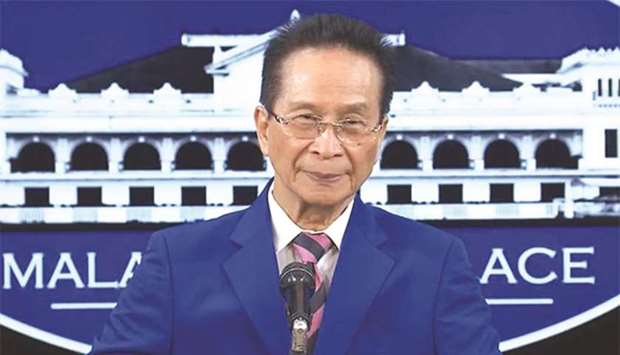Malacanang yesterday expressed concern over a report that the Philippines is turning into a base of Islamic State (IS) fighters.
“Definitely, then we should undertake measures to prevent that from happening,” Palace spokesman Salvador Panelo said at a news conference.
“I will have to ask the Department of National Defence because they are the ones monitoring the movements of these people,” he added.
The New York Times reported that after losing their territories they controlled in Iraq and Syria, IS fighters were eyeing Mindanao as their new base, calling the region its “East Asia province.”
“But far from defeated, the movement has sprouted elsewhere. And here in the Mindanao island group of southern Philippines, long a haven for insurgents because of dense wilderness and weak policing, the Islamic State has attracted a range of militants,” the report said.
“An illustration circulated days later on Islamic State chat groups, showing President Rodrigo Duterte of the Philippines kneeling on a pile of skulls and a militant standing over him with a dagger.
The caption on the picture sounded a warning: ‘The fighting has just begun,’” it added.
Mindanao has been under martial rule since May last year in response to IS-inspired Maute rebels that laid siege to Marawi City and allegedly attempted to establish a caliphate for the terror group.
Duterte, in his speech in February, warned of more terrorist attacks by the IS, which he described as “insane” and “made in hell.”
“We have this insane IS that they would kill. And I expect that they would do some bombings here and bombings there ‘cause that’s what they get in the Middle East,” the president had said.
Duterte earlier ordered government troops to annihilate terrorists and enemies of the state after the twin explosions at the Our Lady of Mount Carmel Cathedral in Jolo, Sulu, that killed at least 20 people and injured almost 100.
The IS had claimed credit for the attack, saying two suicide bombers detonated a belt of explosives.
The Philippine military was not discounting this claim but said the Ajang-Ajang, a sub-group of the Abu Sayyaf Group, might be behind the blasts.
The Philippine National Police had declared the Jolo cathedral bombing “case closed” after the alleged bombers surrendered separately to authorities in Sulu.

Palace spokesman Salvador Panelo.
